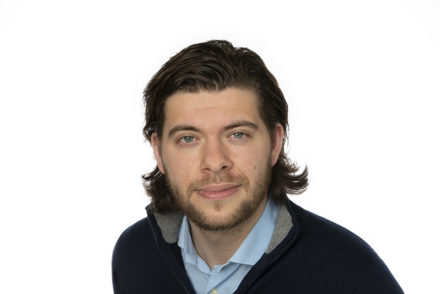Would you kill to save your own life?
The claim that the State is the only one who has a legitimacy over violence, according to many, is supported by the Hobbesian idea that we hand over our “natural rights” of using violence to the State and in return enjoy the security the State provides us with. Nevertheless, once the State fails to protect us, that is, in the situations of the immediate life threats, we are able to “take back” those rights and use violence as a means of so-called self-defence.
Taking this as a starting point, I want to say something about “taking back” our natural rights to violence and defending ourselves, even at the cost of another persons’ life. I want to illustrate just how difficult it is to make a quick realization that: a) one’s life is threatened, b) the State is not there to protect and c) a violent reaction is necessary, and finally: do something about it.
I recently came back from Morocco. I had a blast hiking through the parched lands of the Rif Mountains, conversing with locals and saying my millionth ‘Non merci’ to the local cavaliers. During one of the hikes, following the gaunt goat paths, I turned around and saw a guy hiding behind a massive rock, some twenty meters away. I did not notice him until that point and instantly got anxious as I was alone and unarmed. I took a stone and a stick, sat down and kept looking at him. My train of thought was: “Okay, this is embarrassing. Am I going to tell the boy I like that I had a blast in Morocco but also had to kill a person? This will look bad on my CV. Where is the nature patrol now? The man noticed me looking at him, stood there a bit and then took another route down. Even though it might be possible that he simply got lost, for a while, I felt threatened. I was evaluating my options and every time found myself trying to reach out to a third party for protection, be it a phone call, a forest guard or a passer-by. Looking back at it, I find it hard to accept that the most natural thing to do would be to take the hard line and in the worst case, become violent. It is simply not that easy.
I find it hard to accept that the most natural thing to do would be to become violent.
After I came back to Tilburg, the Bataclan shooting happened and the immense debate about national security, terrorism, IS oil prices and passports got heated up. While recognizing the importance of this, I think that there was something else worth thinking about as well. It is the simple fact that ca. 200 people were laying on the floor for more than 10 minutes. For more than 600 seconds people were laying calmly on the floor and awaited the State’s intervention. Intervention came in the form of the police storming the building.
Now, what interests me about this image is this: What was going through the minds of the people silently laying on the floor for more than ten minutes? Where they even close to considering that: a) their life was threatened, b) the state was not here to protect them, c) a violent reaction was necessary and then tried to do something about it?
The shift from enjoying protection to protecting one’s life is not as simple as we prefer to describe it, there are numerous factors at play, such as social cohesion, divided responsibility and most importantly, lack of action at the moment of crisis. So, to reinforce my question once again, why did 200 people silently lay down and stay in the same position until the police force arrived ten minutes later and liberated them? What went wrong there? Why didn’t the visitors at the venue “take back” their natural rights when the State didn’t protect them in the first place?
What I realized that Sunday in Morocco as I was hiking back to the city is this: I would do anything in my power to save my life, regardless of my future CV.






